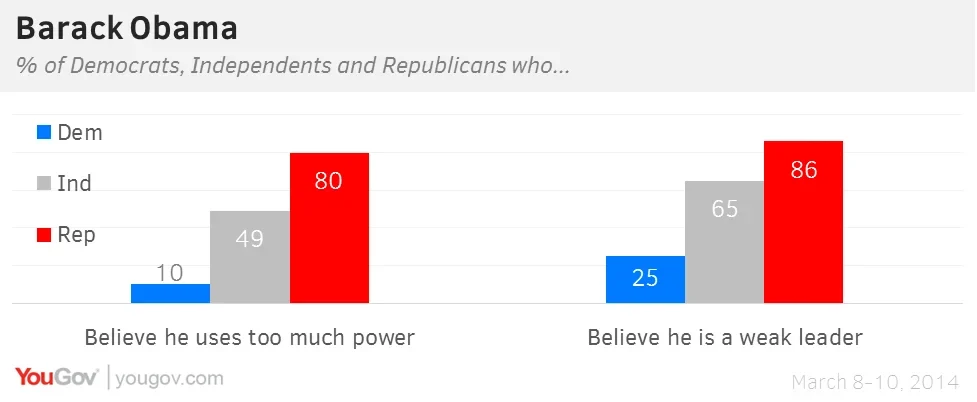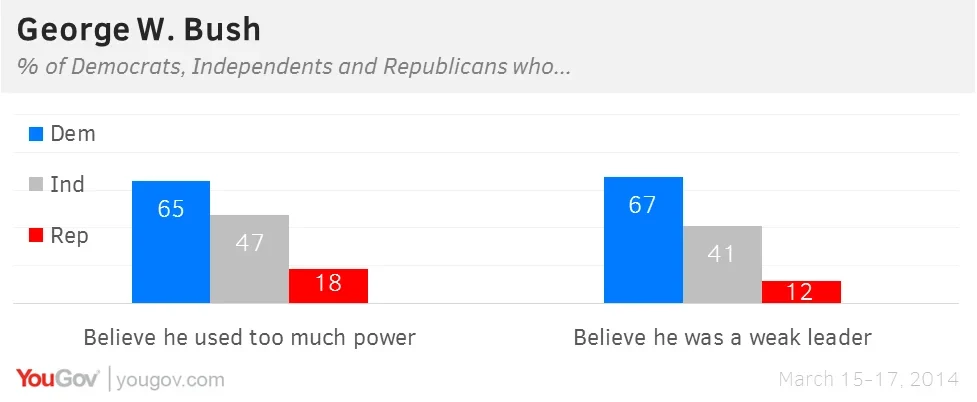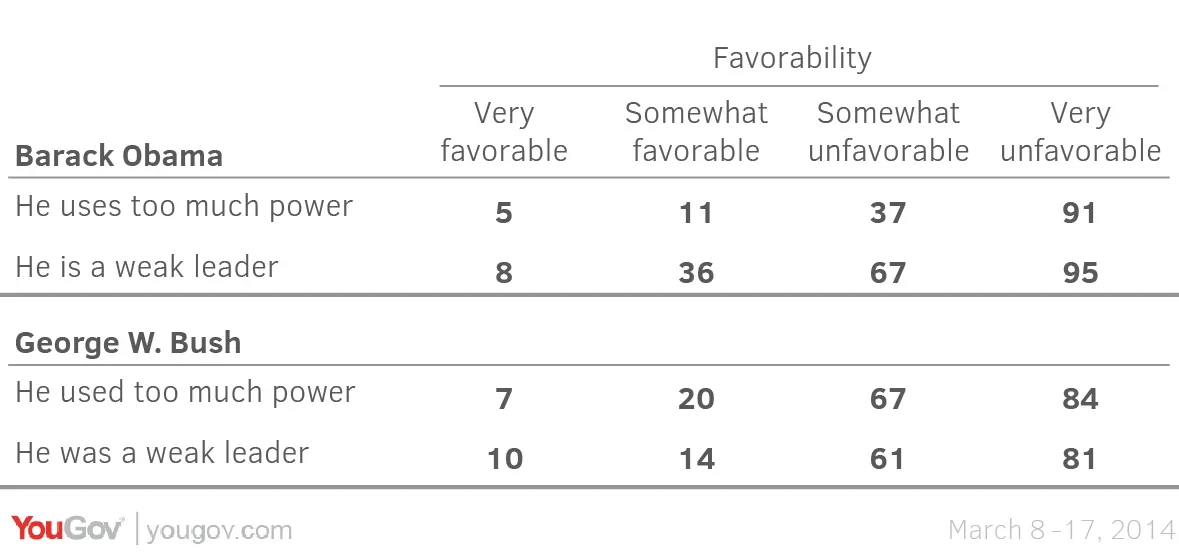Republicans think Barack Obama has been both too weak and too powerful… but Democrats say the same thing about George W. Bush
Early last month YouGov asked a series of questions about President Obama’s leadership and use of presidential power. The topline figures showed that views are, unsurprisingly, mixed: Americans are generally split on whether the president uses too much power (42%), the right amount (25%) or not enough (26%), and on whether he is a strong or a weak leader, with a slight tendency towards “weak” (45-55%).
Republicans, however, are strongly in agreement on both questions. 80% believe the president uses too much power, and 86% believe he is a weak leader.

Columnists have recently seized on this contradiction as evidence of a fundamental contradiction among the President’s critics: they say he is “weak” (e.g. on foreign policy) and “tyrannical” (e.g. on executive orders, Obamacare or Common Core).
But this is not the first President to be accused of both things. Towards the end of his term, George W. Bush was commonly said by opponents to be tyrannical, and less commonly weak. But we re-asked people for their views last week, and Democrats are guilty of the same apparent contradiction:

Solid majorities of Democrats say he was a weak leader (67%), and believe that he used too much power (65%). So, if Republicans are contradicting themselves, they are not alone.
The Halo Effect
As data journalist Nate Silver points out in a recent piece, a cognitive bias called the “halo effect” often arises in politics. Overall feelings about a politician spill over into judgments about the politician’s specific qualities. This looks like what we’re seeing – both with Republicans’ opinions about Obama, and Democrats’ feelings about George W. Bush. If there’s a negative option going, they’ll likely pick it.
In order to tease out the distinctive shape of a reputation it is more helpful to look amongst people who view each man favorably or unfavorably. This should correlate even more closely than partisan allegiance to whether respondents choose the negative or positive options presented to them.

Notice how people who only somewhat like President Obama are much more likely to say he is weak than to say he is too powerful. Meanwhile, people with somewhat favorable opinions of President Bush are more likely to say he was too powerful than to say he was too weak.
Whatever their preferred party, voters with strong opinions about someone (like the president) tend not to “split the ticket” when it comes to his or her specific qualities – even if it occasionally leads to contradiction.
Image: Getty
Full results can be found here, here, here and here.
Economist/YouGov poll archives can be found here.









